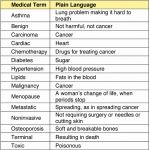by R. Moore Johnson
Although I am a doctor, I do not surround myself with other doctors. I know many people from many walks of life. And I’ve noticed that the healthiest of them have something in common. It’s not their height or weight, skin or hair color, or even their blood pressure or heart rate. For the healthiest of them, health is like a hobby. They like to talk about it, read about it, follow it, learn about it, share it, practice it and even laugh about it.
 |
| FAMILY FITNESS—Ann Kenderson works out with fellow SilverSneakers members at the Kingsley Association Health and Wellness Expo in East Liberty during National Minority Health Month in April 2008.
|
You’ll hear them say, “Now I just read…” or “Did you hear?” or “There’s a brand new study that shows…” or “I learned something so interesting today…”
And they go on to talk about preventions, exercises, diseases, health insurance options, weight control, foods, managing a doctor or hospital visit…you name it.
They are “pumped’ about health information!
The more you include good health information in your world, the more health literate you are bound to become. Health literacy is the ability to obtain, process and understand health information. The more health literate you become, the better equipped you will be to make informed health decisions.
The American Medical Association has made an important discovery about health literacy: they’ve discovered that having good or poor health literacy is more closely linked to whether you have good or poor health than your age, your income, your employment status, your education level and your race.
Research provides additional information, too. It shows that limited health literacy results in poorer health. Those with limited health literacy:
•Are more likely to skip preventive screenings such as mammograms, Pap smears and flu shots;
•Often delay getting medical treatment;
•Are less able to effectively manage chronic conditions such as diabetes or arthritis;
•Have less information about their diseases;
•Are hospitalized more and use emergency services more;
•Are more likely to self-report their health as “poor.”
Today, it’s easier and more entertaining than ever to become health literate. There is good information on television, on the Web, in exciting magazines, in free seminars in our neighborhood libraries and hospitals, and increasingly, even at work, where employers are helping employees become healthier.
In addition, if you have Highmark or other health insurance, your member website usually includes reliable health information, as well as other helpful services for members such as Highmark Blues on Calls, which is free, 24-hour health coaching.
My favorite consumer health website, is www.prevention.com.
I visit there often. Do remember, though, that you should always maintain a “medical home,” and see your physician when needed.
Remember, better health information leads to better health literacy and better health literacy leads to better health. And perhaps a brand new hobby for you, too!
(Excerpted from an article by Dr. Johnson that originally appeared in Women-CONNECT, Winter 2010.)
How health literate are you?
See if you know what the medical term means in plain language.
 |